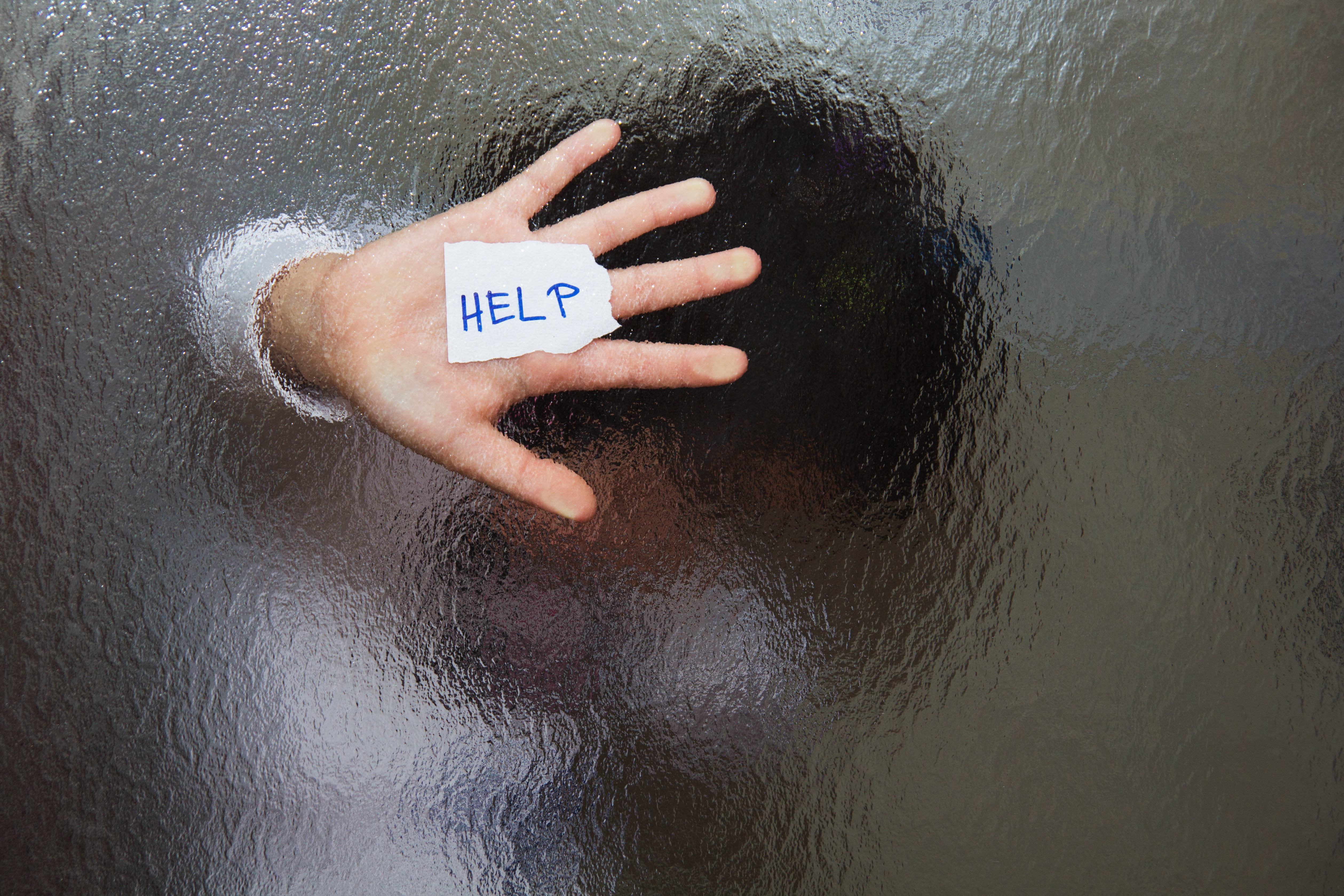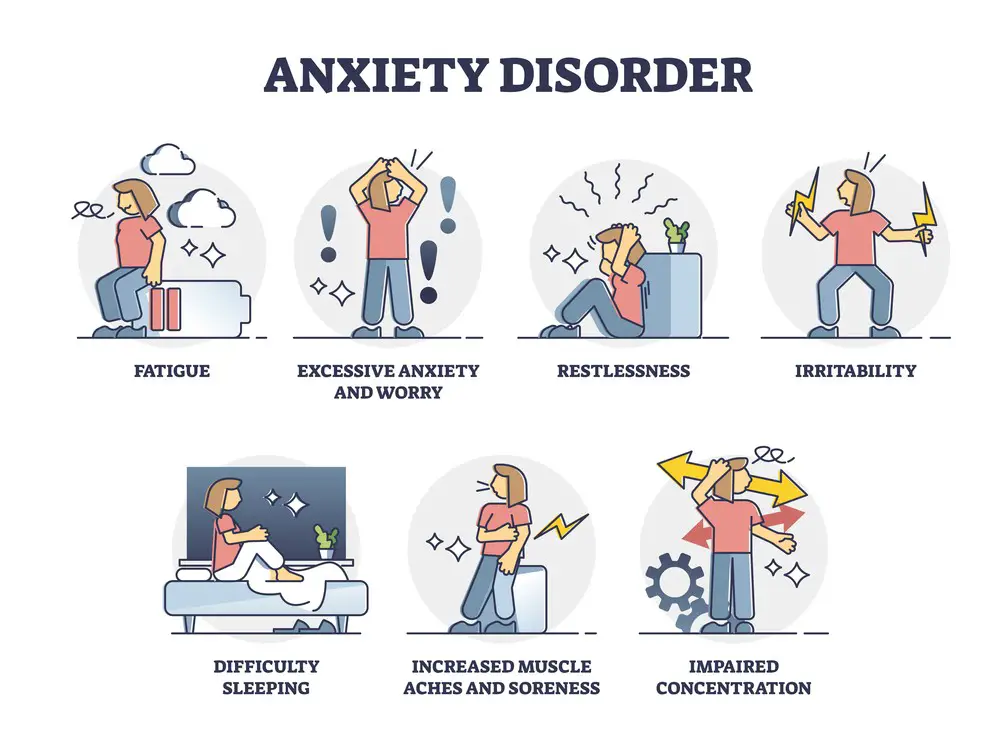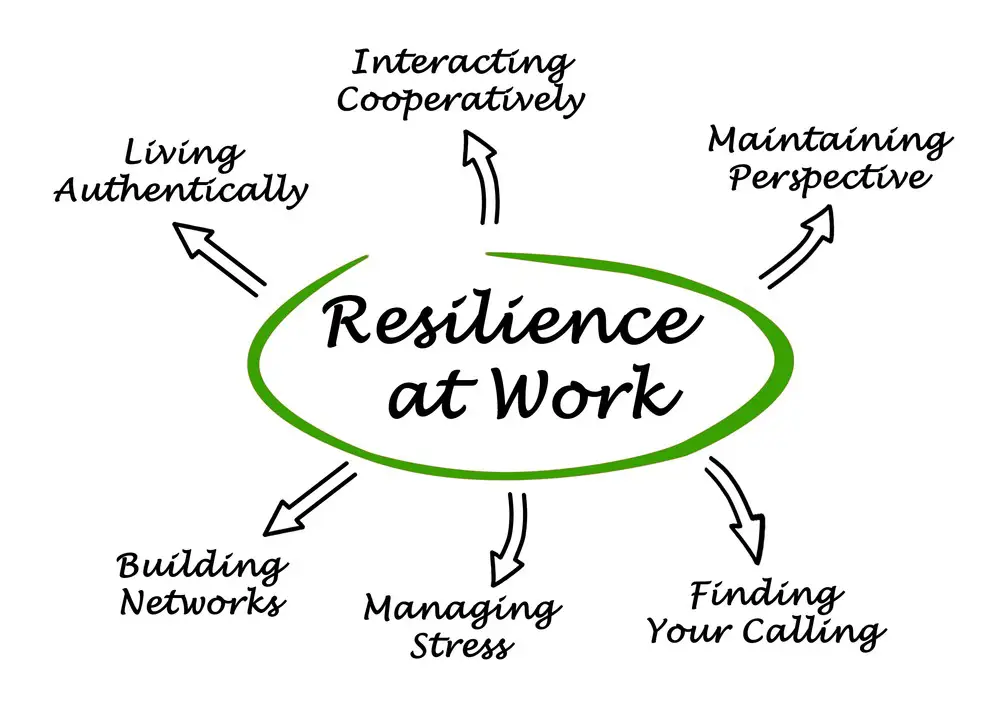As a BetterHelp affiliate, we receive compensation from BetterHelp if you purchase products or services through the links provided
When you experience abuse, it’s natural to question the presence of God in your life. The pain and trauma can lead to feelings of abandonment, which can be difficult to reconcile with believing in a loving and protective deity. It’s important to understand that just because you’ve faced hardships doesn’t mean God wasn’t there or indifferent to your suffering.
The nature of God is often represented as a loving, caring, and protective force. However, when we go through traumatic experiences like abuse, it’s typical to feel that this loving force somehow failed or was absent from our lives. The Bible acknowledges human suffering and offers insights into navigating pain and tragedy. While it is hard to comprehend God’s ways, it shows that even good people can suffer and are not exempt from life’s adversities.
Key Takeaways
- God’s presence may sometimes be hard to feel during trauma, but it doesn’t indicate abandonment.
- Understanding the nature of God, suffering, and healing is essential to navigate through the aftermath of abuse.
- The church, faith communities, and personal stories of survival can offer hope and restoration after abuse.

The Nature of God
God’s Love
Remember, God’s love is unconditional and ever-present. Even when you’re struggling with the pain caused by abuse, God’s love remains steadfast. He weeps with you and shares in your sorrow. You might not see it amid the storm, but the Lord is your constant companion, cheering you up and giving hope.
God’s Plan
It’s hard to imagine a loving God allowing abuse to happen. But it’s crucial to remember that God’s plan is ultimately about our growth, resilience, and triumph. While God doesn’t condone abuse, He can use those difficult moments as a tool to shape your character and strength. Trust in His plan, and you’ll find your path towards healing.
Key takeaway: God’s plan concerns your growth, resilience, and triumph.
Relationship with God
In moments of heartache, your relationship with God can be your lifeline. Foster it through regular prayer, meditation, and study of the truth in His word. This close connection with the Lord will provide comfort, guidance, and a sense of hope when it feels like there’s none left. Remember to always turn to God in your darkest moments for support.
- Reach out in prayer.
- Find solace in His word.
- Trust His guidance
When faced with hardships, trust in God and His unconditional love. You can find strength and hope amidst the challenges by nurturing your relationship with Him and embracing His plan.

Understanding Abuse
Types of Abuse
Abuse can come in many forms, and it’s important to recognize them. Some of the types you may encounter include:
- Physical abuse: This involves any form of violent behavior like hitting, punching, or slapping.
- Sexual abuse: This includes being forced or coerced into sexual activities without consent.
Understanding the different types of abuse will help you better recognize when it’s happening.
The Abuser’s Deceit
Abusers often manipulate and deceive their victims, making it difficult for you to realize what’s happening. Keep in mind that an abuser may:
- Appear charming and kind in public or towards others
- Gaslight you, making you question your reality
- Make excuses or shift blame for their actions
By recognizing these deceitful tactics, you can better protect yourself and seek help.
Impact of Abuse
The aftereffects of abuse can be long-lasting and deeply rooted. It’s important to be aware of the various ways it can impact you:
- Emotional trauma: Abuse can leave you shame, guilt, and low self-esteem.
- Trust issues: After being betrayed by someone you trusted, it can be difficult to trust others in the future.
- Mental health struggles: Survivors of abuse may experience anxiety, depression, or post-traumatic stress disorder (PTSD).
As a survivor of abuse, remember that healing takes time, and it’s essential to prioritize your well-being.
 Feeling of Abandonment
Feeling of Abandonment
The Struggles with Trust
It’s natural for you to have trust issues after experiencing abuse. You’re likely feeling abandoned, struggling to understand why God didn’t intervene. It’s important to recognize that these feelings of abandonment don’t define your self-worth.
- Loss of faith in others and in God
- Difficulty opening up and building new relationships
- Constantly questioning others’ intentions
Key takeaway: Trust is a crucial aspect of healing. Remember, rebuilding trust takes time and patience.

Fear and Anxiety
The sense of abandonment can also lead to feelings of fear and anxiety. You might find yourself:
- Overanalyzing situations, fearing the worst
- Worrying excessively about future relationships
- Experiencing anxiety attacks when you’re reminded of the abuse
Key takeaway: Be patient with yourself as you learn to manage fear and anxiety. Seek help when needed and remember that it’s normal to feel this way after trauma.
Anger and Bitterness
Feeling abandoned by God can cause intense emotions like anger and bitterness. You might:
- Direct your anger towards the abuser, God, or even yourself
- Have difficulty letting go of past injustices
- Struggle with forgiveness towards the abuser or God
Key takeaway: Acknowledge and express your anger and bitterness. It’s essential to process these feelings healthily to move forward.
Biblical View of Suffering
Suffering in the Bible
In the Bible, suffering is often portrayed as a natural part of human existence. Stories like Job’s trials and tribulations show that even the most faithful can experience immense pain and adversity. When you read these accounts, it’s important to remember that they serve as examples of how to remain steadfast in the face of adversity and remind us that God is present even in our most trying times.
Sin and Suffering
Sometimes, suffering can directly result from our sins or those around us. The Bible tells us that sin entered the world through Adam and Eve; consequently, we all experience pain and suffering. This connection between suffering and sin is not meant to be a punishment but an opportunity for spiritual growth and redemption. When you acknowledge your sins and ask for forgiveness, you can find solace in knowing God’s mercy and love can heal your pain.

Jesus and Suffering
Jesus’ life and ultimate sacrifice on the cross are central to understanding the biblical view of suffering. Jesus experienced pain and hardship, as we do throughout his life, yet he remained righteous and loving. His suffering on the cross symbolizes the ultimate act of love – taking on our sins to save us. Remember that Jesus knows your pain and has endured it in times of distress, giving you strength to find hope even in the darkest moments.
Key takeaway: Suffering is an inevitable part of life, but the Bible teaches us that finding strength in God and seeking forgiveness can offer solace and healing amid adversity.
 A Journey Towards Healing
A Journey Towards Healing
Finding Comfort and Peace
Finding comfort and peace in your life is essential when you start your healing journey. Surround yourself with positive and supportive people. Create a safe space for yourself to process your feelings and emotions. Here are some strategies for finding comfort and peace:
- Practice mindfulness and meditation to help focus on the present moment.
- Allow yourself to feel your emotions fully, knowing they are a part of your healing process.
- Engage in self-care activities that help you feel nurtured and cared for.
You deserve to feel comfort and peace in your life.
Courage to Face Pain
Facing the pain of abuse isn’t easy, but it’s necessary for healing. You’ll need courage to confront the memories and emotions that arise. Here are some tips for summoning the courage to face your pain:
- Remind yourself that you are strong and resilient.
- Reach out to friends and loved ones for support and encouragement.
- Consider speaking with a therapist or counselor for guidance.
Your courage will help you overcome the pain and promote healing.
Faith in Healing
Believing in your ability to heal is crucial for your journey toward wholeness. Trust the process, even when it feels challenging or overwhelming. Maintain your faith by focusing on these ideas:
- Recognize that healing is possible and that you are moving forward with each step.
- Envision your future self as healed and whole. Trust that you will get there in time.
- Acknowledge your progress, no matter how small it may seem.
Your faith will sustain you during difficult moments and help you reach healing.

The Role of the Church
Church as Refuge
The church has always been known as a place where people can find solace and safety in times of need. For you, this can mean turning to your local Christian community for guidance and support if you’ve been a victim of abuse. They might be able to provide you with a safe space to heal and come to terms with your experiences.
Community Support
You’ll find that one of the key pillars of any church is community. Your fellow church members can be invaluable in providing emotional support and understanding during your healing journey. Reach out to them, share your experiences, and allow them to offer you their empathy, encouragement, and prayers. Remember, healing is not a journey meant to be taken alone; leaning on your Christian community can make a difference.
Resources for Victims
Another crucial aspect of the church’s role in supporting abuse victims is to provide them with necessary resources and guidance. This may include connecting you with various organizations, such as support groups, counseling services, and legal assistance, which can aid your healing and protection. Don’t hesitate to ask your church leaders and fellow members for referrals and recommendations. They’re there to help and want to support you on your journey toward healing.
In short, the church can provide a haven, foster community support, and offer invaluable resources for those who have suffered abuse. Turning to your Christian community may ultimately be your strongest ally in your journey to healing and rebuilding your life.

Hope and Restoration
Forgiveness and Freedom
Sometimes, it’s hard to understand why terrible things like abuse happen to you. However, embracing forgiveness can be a powerful step towards healing. Forgiving your abuser doesn’t minimize the pain they caused, but it releases you from the burden of bitterness and resentment. It allows you to reclaim your power and find freedom in letting go.
Additionally, don’t forget to extend that same forgiveness to yourself. You may feel guilt or shame, but know it’s okay to let those feelings go, too. Remember, you’re not responsible for someone else’s actions.
Key takeaway: Embrace forgiveness to regain your power and freedom from the pain.
Restoring Trust
Rebuilding trust in others and God can be a slow and difficult process, but it’s essential for healing. Start by building trust in small steps – connect with trusted friends, family members, or support groups who can provide a safe environment to share your feelings and experiences.
As you heal, growing your relationship with God and trusting in His unfailing love is important. Reflect on how He has guided you through tough times in the past, and let those memories strengthen your faith in the present. Pray, read Scripture, and listen to sermons to remind yourself of God’s presence and promise to always be with you.
Key takeaway: Rebuild trust in people and God through small steps and spiritual growth.
Hope for the Future
While the scars from abuse may never completely fade, you can find hope and healing for the future. Be patient with yourself and take the time you need to recover. Surround yourself with supportive people who empower and uplift you. Embrace your passions and interests, and rediscover what brings you joy and fulfillment.
As you leave the past behind, trust in God’s plan for your life. Remember that He is a loving Father who can turn even the most painful experiences into something beautiful in His time. Keep your heart and mind open to the possibilities ahead, knowing your abuse does not define you or your future.
Key takeaway: As you heal, focus on rediscovering your passions and trusting God’s plan for your future.
 ? When Soul Meets Suffering: Signs You Might Need Therapy
? When Soul Meets Suffering: Signs You Might Need Therapy
If you’ve found yourself wrestling with questions like “Where Was God When I Was Abused?”, you already carry a weight that could benefit from professional support. But how do you know for sure that therapy is the next step? Here are some signs:
- Persistent Despair: You’re experiencing a chronic sadness that doesn’t lift, no matter how much you pray or seek spiritual guidance.
- Crisis of Faith: Your belief in God feels shaky, and you struggle to reconcile your faith with your experiences.
- Disconnected Reality: You feel increasingly isolated from your church, community, and God.
- Survivor’s Guilt: Despite biblical teachings on suffering, you can’t shake the feeling that you’re somehow to blame.
? Soul-Searching Goals: What To Aim for in Therapy
Embarking on the therapeutic journey doesn’t mean walking away from your faith. Goals for your therapy can closely align with spiritual objectives:
- Reclaim Your Faith: Learn how to reconcile your faith and experiences, finding peace and growth through the struggle.
- Emotional Equilibrium: Work towards emotional stability while holding space for spiritual reflection.
- Community Reconnection: Build strategies to reconnect with your faith community meaningfully and safely.
- Self-Forgiveness: Embrace the biblical teachings of grace and forgiveness, applying them to yourself.
Faithful Insight: Consider Christian counselors available through Faithful Counseling, a division of BetterHelp, who can help align your therapeutic journey with your spiritual needs.
? Sprouting Hope: Recognizable Signs of Progress
Therapy is a commitment, both emotionally and often financially. But how do you know it’s working? What are the signs of progress?
- A Renewed Sense of Purpose: You find that your daily prayers and activities hold more meaning.
- Less Emotional Volatility: The extreme highs and lows begin to even out.
- Rediscovered Faith: Scriptures resonate again, becoming sources of comfort rather than confusion.
- Restored Relationships: You start to feel a sense of belonging in your community, and your relationship with God feels more secure.
Remember, progress is seldom linear. Some days, you’ll take two steps forward and one step back. And that’s okay. It’s all part of the journey. Keep your faith and continue with the therapy that suits your needs and aligns with your beliefs. It’s okay to seek help—you’re not alone.
Parting Thoughts
You’ve been through a lot, but healing is possible. You can overcome the darkness of your past abuse with hope, faith, love, courage, and peace. It’s important to remember that the power of love and support can help guide you on this journey.
Opening your heart to healing begins with acknowledging your pain and allowing yourself to feel the emotions surrounding your abuse. Seek support from loved ones and therapy professionals who can help you develop healthy coping strategies.
Strength in faith will guide you through your healing journey. Embrace your spiritual side, and find comfort in your beliefs. You may discover newfound hope within your faith and a stronger connection with a higher power.
Demonstrating courage means facing your past trauma and channeling that energy toward encouraging others who have been abused. By sharing your story, you can provide hope and empower others to seek help and begin their journey towards healing.
Internal peace is essential for true healing. By working through your emotions, you’re taking control of your life and inviting tranquility into your soul. Forgiveness, not only of others but also of yourself, is integral to achieving peace.
Remember, healing is a process; as mentioned above, progress may not always be linear. Some days will be harder than others. Stay compassionate and patient with yourself, and reach out for support when needed. Keep faith in your resilience and ability to overcome.
Frequently Asked Questions
Why does God allow abuse to happen?
Sometimes, it’s tough to understand why a loving God would allow abuse. Humans have free will in this world, which means people can make good and bad choices. Unfortunately, some individuals misuse their free will, causing harm to others. However, this isn’t a reflection of God’s intentions for humanity. Always remember that God does not condone abuse and grieves with you.
How can I heal from past abuse with God’s help?
Healing from abuse can be challenging, but you don’t have to do it alone. Here are some strategies to heal with God’s help:
- Pray and talk to God about your feelings.
- Read Scriptures that offer comfort and healing.
- Seek professional counseling with a faith-based therapist.
- Surround yourself with a supportive faith community.
- Practice forgiveness – for both yourself and your abuser.
Key takeaway: God is your ultimate source of strength and healing in life’s darkest moments.
What does the Bible say about dealing with trauma?
The Bible contains verses that offer hope, strength, and healing for trauma patients. Some examples include:
- Psalm 34:18: “The Lord is close to the brokenhearted and saves those who are crushed in spirit.”
- Isaiah 61:1: “He has sent me to bind up the brokenhearted, to proclaim freedom for the captives and release from darkness for the prisoners.”
- 2 Corinthians 1:3-4: “Praise be to… the God of all comfort, who comforts us in all our troubles…”
Dive into these passages and find solace in God’s Word.
Can God bring justice to my abuser?
It’s natural to want justice for the pain your abuser inflicted on you. Remember, God is and doesn’t ignore or condone evil actions. It may take time, but trust that God will bring justice in His way.
How can I build trust in God after abuse?
Regaining trust in God may be a process, but here are some helpful tips:
- Reflect on God’s love and promises in the Bible.
- Share your feelings with a trusted faith advisor or counselor.
- Witness the goodness of God in others’ lives.
- Pray for guidance and trust in your relationship with God.
Remember that rebuilding trust is a journey, so be patient with yourself.
What support does my faith provide for survivors of abuse?
Your faith can be a significant pillar of support during your healing journey. Here’s how:
- Faith communities can provide support, love, and encouragement.
- Scriptures can offer comfort and guidance.
- Prayer can strengthen and empower you.
- Counselors with a faith-based background can help navigate your healing process.
Key takeaway: Embrace your faith’s support, and remember that God is always by your side.
?️ A Leap of Faith: Jacob Maslow on God, Resilience, and Navigating Abuse
Hello, I’m Jacob Maslow, and I’m honored to share the space of this article with you. I grew up in an Orthodox Jewish community, attending religious schools throughout my life, even up to college. Today, I call Israel home, where I’ve unfortunately dealt with rabbinical judges who neither adhere to the law nor follow traditional rabbinical teachings. Despite these challenges, especially when fighting for custody of my children, I’m fueled by an unshakeable resilience and hope that we will be reunited soon.
My faith in God has been the cornerstone of getting me through these hardships. This is particularly crucial given the subject matter of the article you’ve just read. Abuse can shake the foundations of your belief system and challenge the nature of God you’ve always imagined: a loving, protective force. But my resilience, fortified by my lifelong relationship with God, provides me a lens to understand that even when it feels like the divine presence has vanished, it hasn’t.
- ? Intersect of Faith and Resilience: I’ve relied on my deep-rooted faith to navigate complex life issues, from custody battles to God’s role in suffering.
- ? Scriptural Sustenance: Having gone to religious schools and college, the Bible’s teachings offer me comfort and perspective. They remind me that adversity is a part of the human experience, even for the faithful.
- ?️ Legal & Spiritual Struggles: Living in Israel, I face an additional complexity dealing with rabbinical courts that often deviate from legal and spiritual tenets. Yet my belief system remains my support structure.
- ? Hope on the Horizon: I carry a hope deeply influenced by my faith, which extends to regaining my children and navigating life’s storms.
The key takeaways in this article are designed to help anyone grappling with questions about God in the face of abuse. Sometimes, the presence of God is hard to discern, but it’s never truly absent. My journey, steeped in religious upbringing and current challenges, is a testament that faith and resilience can coexist, even thrive, in difficult circumstances. As we explore this difficult topic together, may you find your beacon of faith and resilience, lighting your path forward.



 Feeling of Abandonment
Feeling of Abandonment
 A Journey Towards Healing
A Journey Towards Healing ? When Soul Meets Suffering: Signs You Might Need Therapy
? When Soul Meets Suffering: Signs You Might Need Therapy

